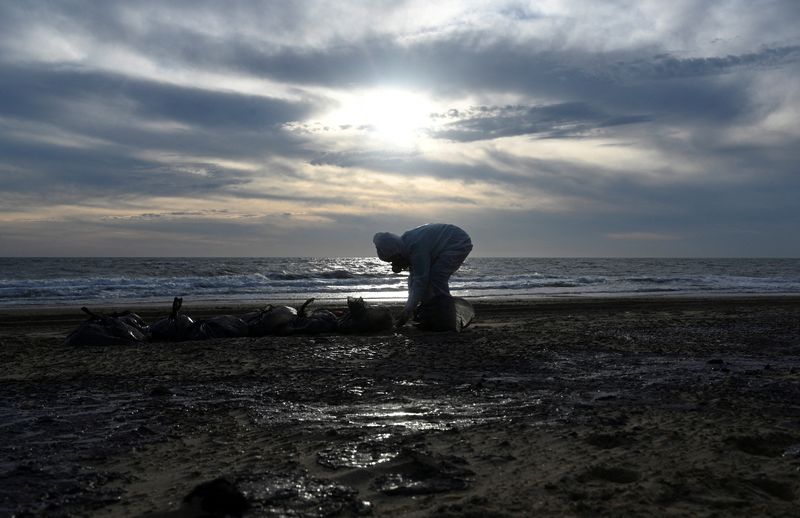Russia clears beaches after Black Sea oil spill, declares emergency in Crimea
(Reuters) - Russia declared a regional state of emergency on Saturday in Crimea, which it seized from Ukraine in 2014, as workers cleared tons of contaminated sand and earth on either side of the Kerch Strait following an oil spill in the Black Sea last month.
Mikhail Razvozhaev, the Russia-installed governor of the city of Sevastopol, said new traces of minor pollution required urgent elimination and declared a state of emergency in the city - giving authorities more power to take swift decisions such as ordering citizens to evacuate their homes.
The Kerch Strait runs between the Black Sea and the Sea of Azov and separates Crimea's Kerch Peninsula from Russia's Krasnodar region.
Rescue workers have now cleared more than 86,000 metric tons of contaminated sand and soil, the emergencies ministry said on Saturday. The oil leaked from two ageing tankers that were hit by a storm on Dec. 15. One sank and the other ran aground.
More than 10,000 people have been working to shovel up viscous, foul-smelling fuel oil from sandy beaches in and around Anapa, a summer resort. Environmental groups have reported deaths of dolphins, porpoises and sea birds.
The emergencies ministry said on the Telegram messaging app that oil-tainted soil had been collected in the broader Kuban region in Russia and in Crimea, whose annexation by Russia has not been recognised by most other countries.
The ministry published video footage of dozens of workers in protective suits loading bags of dirt onto diggers and others skimming dirt off the sand with shovels.
Russia's transport ministry said this week experts had established that about 2,400 metric tons of oil products had spilled into the sea, a smaller spill than initially feared.
When the disaster struck, state media reported that the stricken tankers, both more than 50-years old, were carrying some 9,200 metric tons (62,000 barrels) of oil products in total.
The spill involved heavy M100-grade fuel oil that solidifies at a temperature of 25 degrees Celsius (77 degrees Fahrenheit) and, unlike other oil products, does not float to the surface but sinks to the bottom or remains suspended in the water column.
(This story has been corrected to say Razvozhaev is governor of Sevastopol, not Crimea, in paragraph 2)
Source: Investing.com
